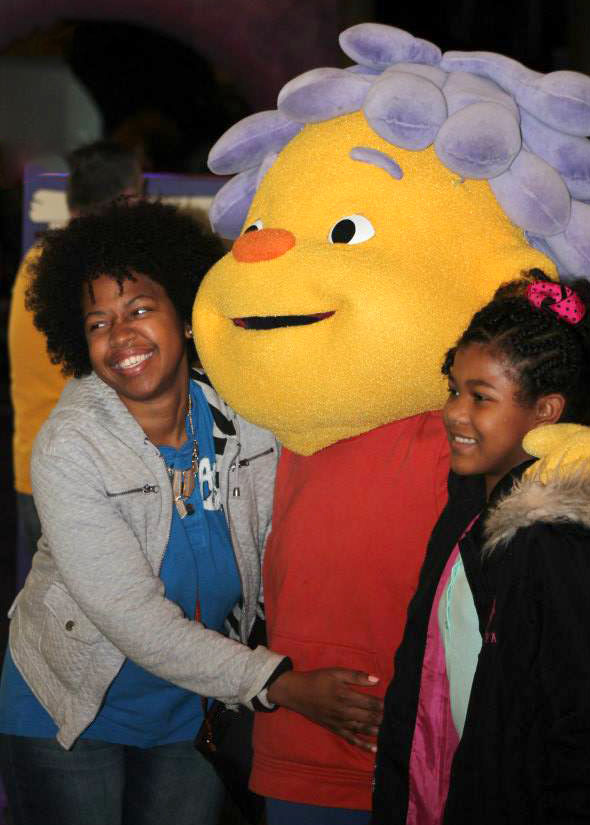Simple Ideas to Help You and Your Child Survive Changing the Clocks
It’s time to Fall Back! Whether you are three or thirty, turning the clocks back one hour can take a little adjusting.
We asked parents who are part of the Henson Hubbub to share their advice and got a few different ideas. There may be more than one perfect answer, so whatever gets you and your family through the night is the winner!
STICK TO THE PLAN
“Sticking to our regular bedtime routine is always key during the beginning or end of daylight savings. Now that our son is older and starting to learn how to tell time, we found it helpful to get him in on the process and even have him adjust some of the clocks himself. It’s important to be patient and sympathetic during this process. If you’re feeling sluggish and tired, chances are your kids are too. Kids are resilient they will adjust and things will be ‘back to normal’ in no time."
- Bethany Braun - Silva, Senior Editor, NYMetroParents @BethanyBraunSilva https://www.facebook.com/nymetroparents
“What has worked best for my preschooler and toddler is to keep their wake-up time and bed time the same even though the clock falls back. Keeping them on the usual schedule has helped my kids be less out of sorts.”
– Shelly Dixon - Twitter, Instagram, Facebook
GET READY!
“Move their bedtime up. Leading up to daylight savings, move their bedtime up 10-15 minutes each day before daylight savings. Start their bedtime earlier than normal with warm baths, quiet reading and essential oils.”
- Shelby Barone - OC Mom Blog* OC Mom Dining * OC Mom TV * OC Mom Travel
“Adjust their wake up/sleep schedules by 15 minutes a day in the days leading up to daylight savings.”
- Adam Cohen, Facebook
“I have two little guys, 3 and 5, and have gone through every method possible to help them adapt to daylight savings since they were wee little ones. What I find works best is adjusting their bedtime and nap time by small increments a few days before the DAY. I like to do it in 15-minute increments so slowly build up to that hour.”
- Samantha Gutstadt, Twitter, Instagram, Facebook
HEAR FROM THE EXPERTS
Our friends at Sleepy Planet, Jill Spivack and Jennifer Waldburger (co-authors of The Sleepeasy Solution), posted an excellent article on managing the clock change. Read it below!
"Falling back" is the time change you loved before becoming a parent because you got an extra hour of sleep, but that you now dread because your little one may wake even earlier than usual! Here are our tips to ensure that the transition goes as smoothly as possible.
1. Put your child to sleep at his normal bedtime on Saturday night.
2. Your child will likely wake up a bit earlier by the new clock than he normally does, say at 5:30 AM (which still feels to him like 6:30 AM). Psychologically, it can be painful to see 5:30 AM on your clock and deal with a child who's bright and perky. You can try giving him some quiet activities (puzzles, coloring books) to play with if you're not quite ready to start the day yourself, but unfortunately there's not a lot you can do about his energy level on this first morning after the time change.
3. If your child still naps, stretch him as far as you can toward his normal first nap time (according to the current clock). In other words, if your child wakes an hour earlier than usual, his body will want to nap an hour earlier, too. Don't let him! Instead, do whatever it takes to keep him awake. Give him a bath or do the Hokey Pokey around the house to keep him up as close to his normal first nap time as possible, then stretch as far as you can toward the next usual naptime according to the current clock, then do the same for a third nap if you have one, then bedtime. Don't let him nap too long for any of his naps, as doing so may continue to cause early morning wakings.
If your child has outgrown napping, you still need to allow him to wake up at the early new time once the clocks have changed (bummer). However, spend your day eating and doing activities according to the usual time, even though the clock has changed. Do your best to keep him up all the way to his regular bedtime at night by the new clock, or as close as you can get without breaking him. Yes, he'll be a bit cranky in the evening temporarily, but after a few days, he'll adjust!
ISN'T IT BETTER TO START MAKING THIS ADJUSTMENT BEFORE THE TIME CHANGE? You can do that, though there are a few important considerations. If you were to adjust your child's bedtime 15 minutes later every other night starting about a week before the time change, for instance, you run the risk of your child becoming overtired - which can cause night wakings and, ironically, earlier mornings than usual. So if you're going to go this route, go slowly - no more than 10-15 minutes per night. If you have a very flexible sleeper who adjusts easily to change, this slower method could work best for him.















































